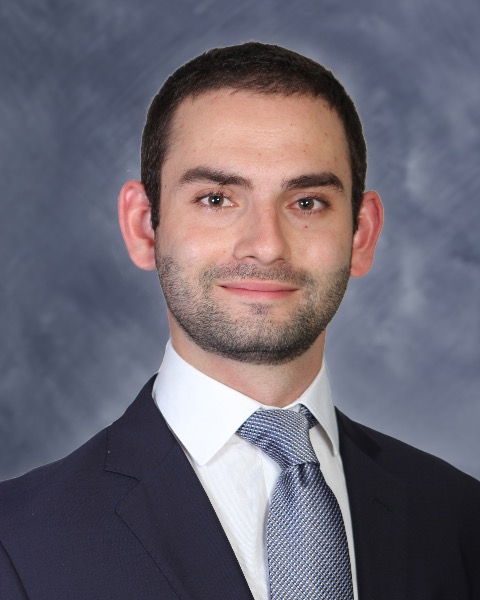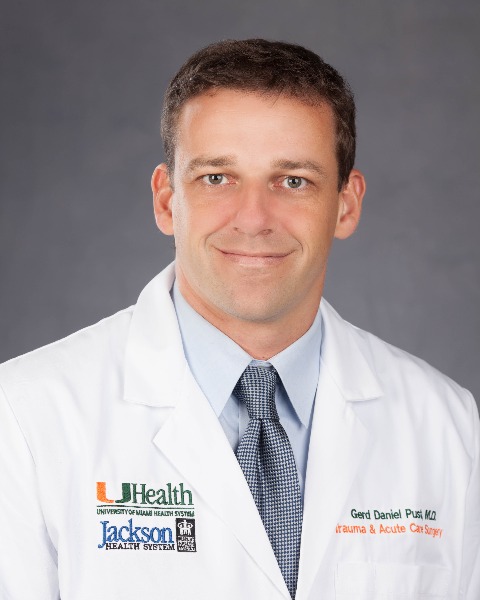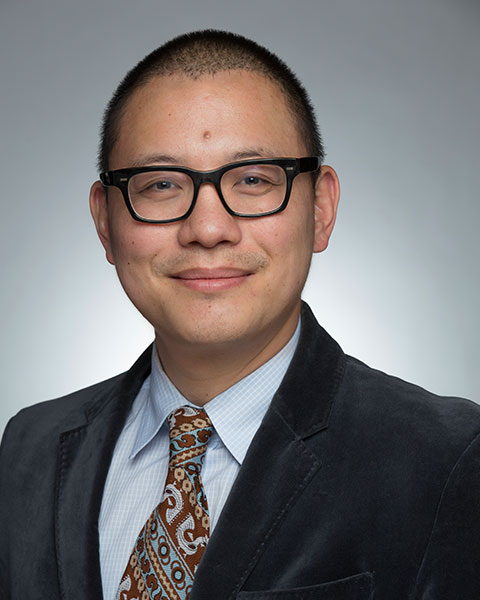Role of Stress Ulcer Prophylaxis in Critically Ill Patients Receiving Enteral Nutrition
-

Majid Chammas, MD,
Postdoctoral Research Fellow
University of Miami/Jackson Health
Miami, FloridaDisclosure information not submitted.
-
SB
Saskya Byerly, MD
Assistant Professor of Surgery
University of Tennessee Health Science Center, United StatesDisclosure information not submitted.
-
JL
Jennifer Lynde, DO
Fellow, Trauma/Surgical Critical Care
University of Miami/Jackson Memorial Hospital, United StatesDisclosure information not submitted.
-

Gerd Pust, MD, FACS,FCCM
Associate Professor of Surgery
Jackson Memorial Hospital - Miller School of Medicine
Miami, Florida, United StatesDisclosure information not submitted.
-
RR
Rishi Rattan, MD
Associate Professor of Surgery
University of Miami Leonard M Miller School of Medicine, United StatesDisclosure information not submitted.
-
NN
Nicholas Namias, MBA, MD, FCCM
Professor of Surgery
University of Miami/Jackson Memorial Hospital, United StatesDisclosure information not submitted.
-

Daniel Yeh, MD, MHPE
Professor
Ryder Trauma Center
Miami, FloridaDisclosure information not submitted.
First Author(s)
Co-Author(s)
Title: Role of Stress Ulcer Prophylaxis in Critically Ill Patients Receiving Enteral Nutrition
Introduction: Enteral nutrition (EN) is protective against stress ulcer-related gastrointestinal (GI) bleeding in critically ill patients. We hypothesized that stress ulcer prophylaxis (SUP) provides no additional benefit to EN alone in decreasing the risk of GI bleeding.
Methods: The 2001-2012 Medical Information Mart for Intensive Care (MIMIC-III) database was queried for patients receiving EN within 2 days of ICU admission and the included subjects were divided into two groups depending on receipt of SUP with proton pump inhibitors or histamine H2-receptor antagonists within 2 days of admission. Propensity score matching (1:1) based on vasopressor use and mechanical ventilation was performed. Chi-squared analysis was performed to compare the composite outcome (alive and not requiring endoscopic hemostasis).
Results: A total of 5,994 ICU patients were included, of which 3,914 (65%) received SUP. The mean [SD] age was 64 [15] years, and the majority of patients were men (56%). A total of 853 (41%) in the "EN alone" group were mechanically ventilated on admission, compared to 2,122 (54%) in the "EN+SUP" group (p< 0.001). Patients in the "EN+SUP" were also more likely to be on vasopressors on admission (9.7% vs. 1.3%, p< 0.001). Propensity score matching resulted in 2,080 patients in each group. There were no significant differences in the need for endoscopic hemostasis between the "EN alone" and "EN+SUP" groups (0.9% vs. 1.3%, p=.245). The odds of the composite outcome were also similar between groups (OR=0.91, 95% CI (0.8, 1.1), p=.215).
Conclusion: In the modern era, clinically significant GI bleeding in ICU patients receiving EN within 2 days of admission is rare. There appears to be a selection bias for adding pharmacologic stress ulcer prophylaxis; however, SUP is not associated with increased odds for a clinical benefit. Additional research is required to improve patient selection for SUP.
